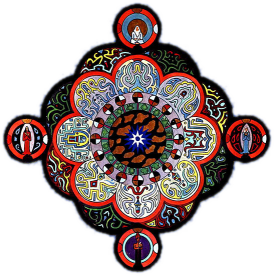
Jungian Psychology
Carl G. Jung (1875 – 1961) was a Swiss Psychiatrist and founder of Analytical Psychology. He was a pioneer in the field of working with archetypes, the unconscious, images, dreams, in a personal and direct way. He created the concepts of the collective unconscious, shadow, synchronicity, and active imagination, to name a few, that are still utilized today in modern psychotherapy.
He not only wrote extensively about his psychological theories, in 22 volumes of his collected works, lectures, letters and various books, based on his medical training and practice. He was a mystic. He developed many of his theories as a result of his own mental breakdown, which he painstakingly recorded in his 7 journals, called “The Black Books, which he then turned into an illuminated manuscript entitled “The Red Book“. It is in these personal works that we get to see his incredible journey into the unconscious and his healing and transformation out of the depths of his unconscious.
How Jungian Psychology is Relevant Today
Although much of this work is nearly 100 years old, it is still relevant, more than ever today. Personally, I began reading Jung as a young adult in my mid 20s and spent years in personal therapy with a Jungian oriented Psychotherapist. The depth of the work made me want to learn more and ultimately led me to pursue formal training in counseling and psychology. I attended Pacifica Graduate Institute in Santa Barbara, CA, for my Masters in Counseling Psychology with an emphasis in Depth Psychology. The school is based on the work of Jung and others in the field of what we now collectively call Depth Psychology, like James Hillman, Joseph Campbell, Edward Edinger, and others.
Learn more about Depth Psychology Here
How I Use Depth Psychology
Jungian and Depth Psychology informs all of my work at its very core. Jung taught us that there is much more to an individual besides his logical thinking mind and that in order to have true healing, we must look to the Psyche, or soul. This larger context Jung uses in his work is the beginning of how I was taught to think “holistically”. Now this term is common in our psychological language, however when Jung was working, this was a barely understood idea; that we are more than our physical bodies and mental thoughts. We are all connected through the collective unconscious, the anima mundi, the soul of the world.
Dreams in particular are one way that I use this work in my practice. Dreams offer a gateway to the soul and the unconscious mind. They are coded metaphors of content that we are not yet consciously aware. Paying attention to our dreams can offer incredible insight and transformation.
